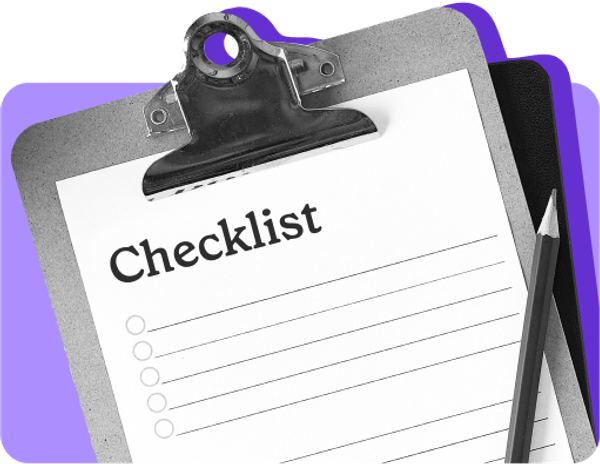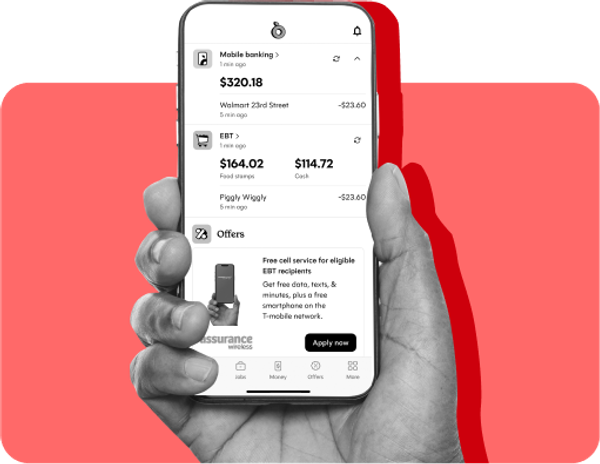What to expect during your SNAP interview

Sometimes people get worried when they hear that to get SNAP (food stamps) you have to do a required interview.
Don't worry: the SNAP interview is not a test. It's just a part of the process to make sure the agency makes a correct eligibility decision based on the rules.
Here are some things you can expect in your SNAP interview:
1. They will go over the information on your application#1-they-will-go-over-the-information-on-your-application
The primary thing the eligibility worker will do during the interview is go over with you the information you filled out when you applied for SNAP.
They will review or ask about things like your income, expenses (rent, utilities), where you're living, who's in your household, and other details that matter for SNAP eligibility.
Most of this you will have put on the application, so they may even not cover everything during the interview.
2. They may ask for details on things that might need more explanation#2-they-may-ask-for-details-on-things-that-might-need-more-explanation
For example, if you put down that you're not receiving any income right now, but that you're paying $1,000 in rent, they may ask how you're paying rent.
This is to make sure they're understanding your situation correctly, and then apply the program rules correctly.
(In fact, the situation of no income but paying rent is actually a real common example most SNAP workers are familiar with: the usual answer is that the person is paying rent out of savings.)
You might get questions on other things that may not be clear just from what you put on the application.
Again, don't worry. These questions are about making sure the agency makes a decision following the rules.
3. The interview is usually pretty short!#3-the-interview-is-usually-pretty-short
Most of the time the interview does not take a long time. This will depend on your specific situation and how complicated it is.
Sometimes an interview can even take as little as 5 minutes; for example, when there are only a few things from the application that the worker needs to clarify. Other times an interview may a half hour or longer.
Don't worry if your interview feels either short or long. This does not mean you are more likely to be eligible or ineligible. It's more about how complicated your situation might be, as well as what interview processes your state agency has decided to put in place.
4. They will usually tell you what additional documents you need to submit before being approved#4-they-will-usually-tell-you-what-additional-documents-you-need-to-submit-before-being-approved
Usually you will include at least some documents when you submit an application for SNAP.
Often at the end of the interview, the eligibility worker will tell you what (if any) additional documents they need you to submit before they can approve your case.
After the interview, you should also get this list of documents in a notice by mail and/or online (usually called a "request for verification") but often a worker will tell you this while you're on the phone so that you can do it as soon as possible.
5. Explaining your rights and responsibilities#5-explaining-your-rights-and-responsibilities
When you apply for SNAP, you are agreeing to certain responsibilities (like telling the agency if your income changes) and also you have certain rights guaranteed by law (like the ability to request a fair hearing on any decision you disagree with).
In some states, the eligibility worker will explain the SNAP rights and responsibilities as a part of the interview.
6. Explaining the eligibility decision, if they have one#6-explaining-the-eligibility-decision-if-they-have-one
If your worker has enough information to make the eligibility decision during the interview, they may explain it to you then and there.
For example, they may tell you whether you are being approved or denied benefits, and if approved, what your monthly benefit amount is.
In other cases, they may need to take more time to work through the eligibility decision after your interview.
If that happens, they will not tell you if you're eligible on the spot, but will usually tell you when you should expect to receive the decision by mail and/or online.
And that's it! You're done!
Final tips#final-tips
Hopefully this has given you a sense of what to expect for your interview. If you're expecting one soon, here are a few final tips to keep in mind:
- Make sure you know whether you need to call in for your interview, or if the agency will be calling you
- If your interview is scheduled, make sure you know what date and time
- Pick up all phone calls when you're expecting an interview (the agency may call from a blocked or restricted number)








